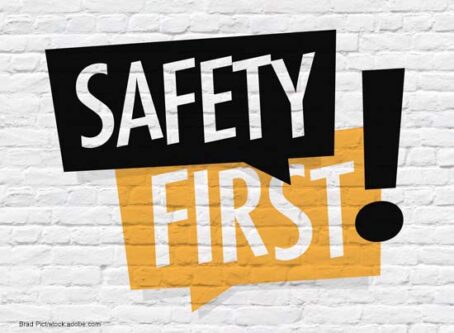DRIVE Act efforts gaining steam
Days after the Owner-Operator Independent Drivers Association sent a letter to House Republicans asking them to support the DRIVE Act, the bill gained two more co-sponsors.
Reps. Brad Finstad, R-Minn., and Randy Feenstra, R-Iowa, recently signed on to the DRIVE Act, which would prevent the Federal Motor Carrier Safety Administration from moving forward with any rulemaking to require speed limiters on heavy-duty trucks.
OOIDA, which represents small-business truckers, opposes mandatory speed limiters and supports HR3039. The Association cites dangerous speed differentials, states’ rights and other unintended consequences among the reasons it opposes requiring all trucks to use speed limiters.
“As you may know, speed limiters control a truck’s top speed and force truckers to travel below the posted speed on many highways,” OOIDA wrote to House Republicans on Feb. 20. “This makes it more difficult for truckers to move with the flow of traffic, navigate merges and get away from dangerous situations, and it also forces other drivers to pass slower trucks more frequently. Decades of research has shown that requiring some vehicles to travel slower than others increases the risk of crashes. In other words, speed limiters have the potential to make roads less safe.”
FMCSA rulemaking
FMCSA is projected in May to unveil a proposal to require most commercial motor vehicles to use a speed-limiting device. While the top speed FMCSA will propose is still unknown, 60, 65 and 68 mph are among the possibilities. All three top speeds are considerably slower than the flow of traffic on many highways across the United States.
Thousands of truck drivers already have spoken out against attempts to mandate speed limiters. When FMCSA released its advance notice in 2022, the agency received about 15,000 comments. The majority came from truck drivers who are opposed to the rulemaking.
“This is a stupid idea,” wrote Karl Wendtand. “The danger of more accidents from cars hitting trucks will go up more if you do this. I own my truck, and even though it will go much faster, I drive it at the speed that gives me the best safety and fuel mileage. I have over 42 years on the road and have never had an accident or even a ticket in 30 years. Punishing me and other professional drivers for actions by car drivers is … unfair and discriminating to those of us who do the hard work of delivering everything you buy. If you really want to lose the older and safer drivers, then pass this regulation.”
DRIVE Act
Rep. Josh Brecheen, R-Okla., introduced the DRIVE Act last year. Sen. Steve Daines, R-Mont., followed by introducing S2761. The bill simply would prevent FMCSA from issuing a rule to mandate speed limiters.
The House bill has gained four co-sponsors in February with the additions of Reps. Finstad, Feenstra, Jeff Van Drew, R-N.J., and Byron Donalds, R-Fla. In total, HR3039 is up to 36 co-sponsors, while the Senate bill has nine.
OOIDA is encouraging its approximately 150,000 members to ask their lawmakers to support the DRIVE Act.
“Recently, FMCSA confirmed that the next phase of its speed limiter rulemaking is expected in May,” OOIDA wrote to its members last week. “While the agency considers their next steps, we aren’t waiting around. That’s why OOIDA continues to press Congress to stop speed limiters through the DRIVE Act. We need you to join the fight today.”
Truck drivers can contact their lawmakers through OOIDA’s Fighting For Truckers website. LL









